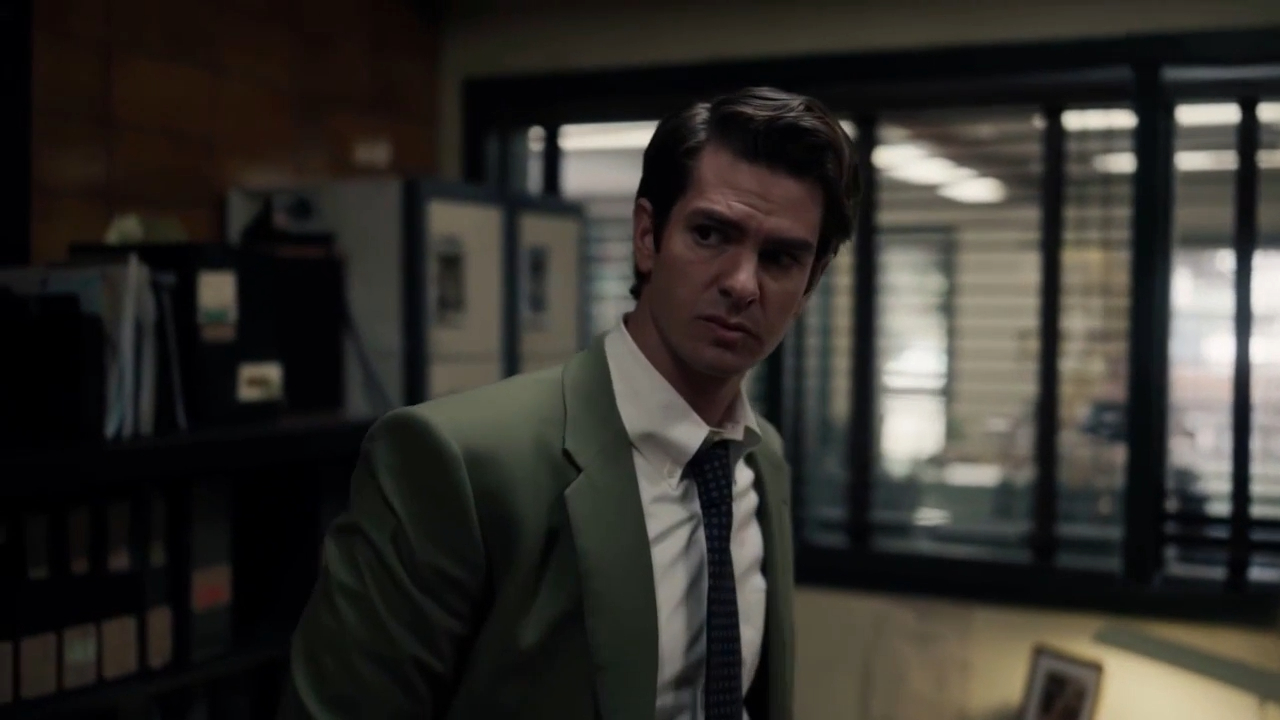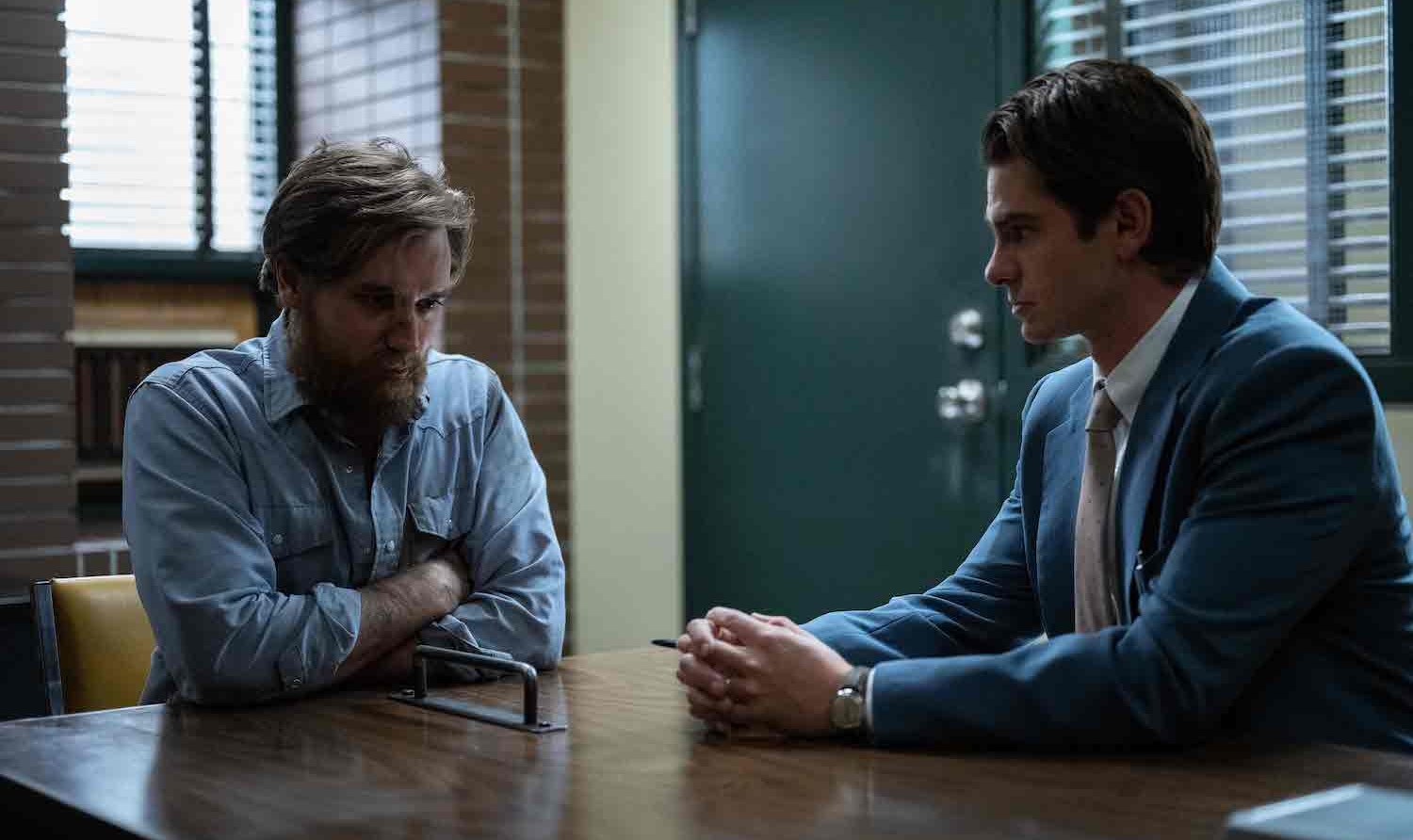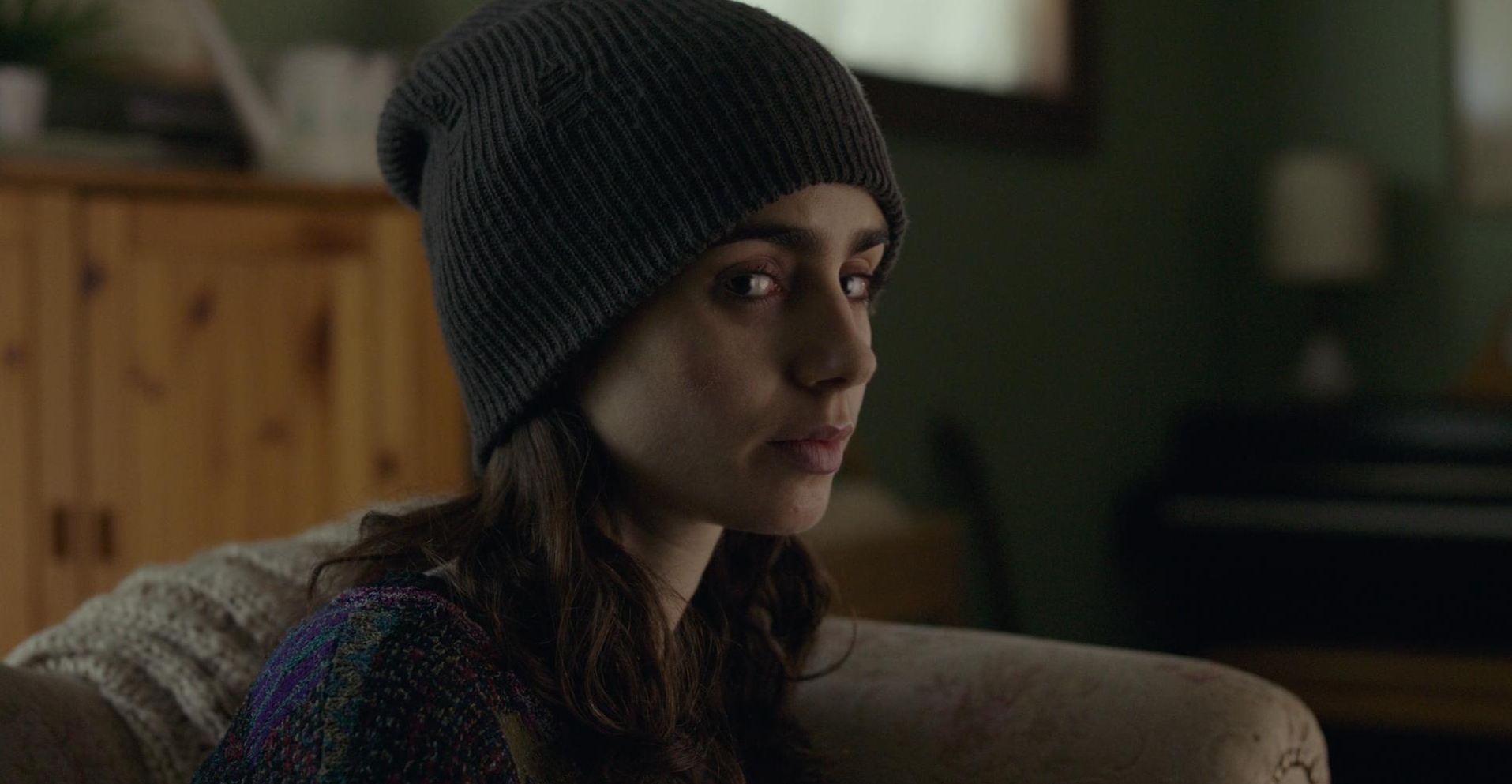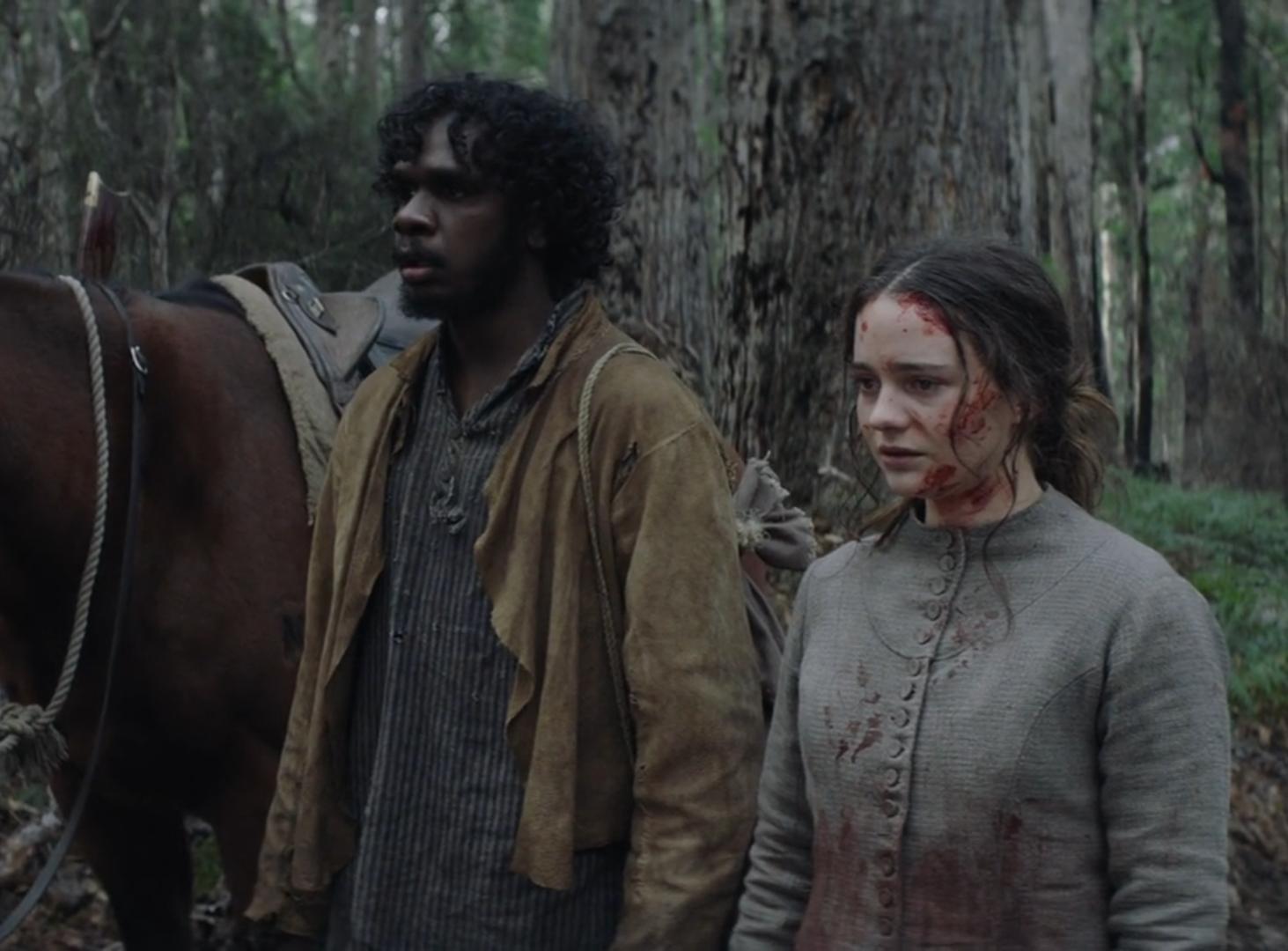
Trigger warning: This article contains brief mentions of suicide, domestic violence and sexual assault.
I have always been quite neutral about trigger warnings. In all honesty, I haven’t thought about them that much. I didn’t see any harm in them, but I also hadn’t advocated for them, because I just didn’t care.
Until I was forced to care.

Andrew Garfield stars in Under The Banner Of Heaven as Detective Jeb Pyre, investigating a gruesome murder within the Mormon community.
Without going into much detail about something that is far too personal to share, a simple trigger warning before episode 5 of Disney+’s drama Under the Banner of Heaven would have worked miracles.
What started out as a very normal, enjoyable Saturday night ended in a trip to the local hospital in the middle of the night, all because we didn’t know that the episode had one scene that was intense in a way we hadn’t anticipated and thus, were unprepared to deal with the fallout of such a triggering moment. (As a side note, the series is excellent and there’s no blame with the production itself).
A trigger warning is a statement warning the consumer of any disturbing content they are about to see, hear, read or otherwise consume. Common ones are about suicide or sexual assault, triggering subjects for many. These warnings help people stay clear of content that might upset them.
When I say upset, I don’t mean the person will just be a tad blue or sad about what they just watched. I’m talking about panic attacks, PTSD attacks, uncontrollable, negative emotions that could lead to self-harm, all of which could have easily been avoided with a warning attached to the media in question.

Netflix’s To The Bone was heavily criticised for its portrayal of anorexia and lack of trigger warnings in 2017
Many still roll their eyes when we talk about trigger warnings. If it doesn’t concern them, they don’t have a reason to care. Plus, they don’t want anything that might potentially spoil what they’re about to watch. This is a fair argument, no one wants a film spoiled for them but does that truly outweigh the pros of having trigger warnings attached?
This article by The New Yorker states that studies have shown how trigger warnings might even make things worse. While the article mostly concerns universities in the US and literary works, it does state that it’s not beneficial for people with PTSD to avoid triggers in the long run.
This is true. Treatment for PTSD strongly relies on exposing the patient to the triggers until they can withstand them. However, on that Saturday night, a warning would have given us back the power to choose whether or not this was the time and the place to be exposed to a trigger. (It wasn’t.)
I wrote about Disney+ attaching warnings to some of its older titles before the service launched in the UK for our friends over at Film Stories. I stand by what I wrote, arguing that: “Films are designed to move you and to emotionally compromise you, but never to put you in any actual danger” – which is exactly what a film has the potential to do without trigger warnings.

The Nightingale includes several triggering scenes of sexual violence and Sundance London issued trigger warnings prior to the public screenings of the film in 2018
Warnings would give back control to those who suffer from conditions that are made worse by some triggers. No one should expose themselves to triggers on their own, only do it in clinically controlled situations and guided by a medical professional or trained therapist. With proper warnings, people would be able to evaluate whether they’re in any shape to be watching scenes of sexual assault, domestic violence or suicide, which are often necessary parts of narratives and reflect the real world.
It’s never been easier to include trigger warnings discreetly and offer that extra bit of support to those who need it to safely consume media. Under the Banner of Heaven is currently streaming on Disney+, where there is often an option to check out all the episodes of the series under a little tab at the bottom of the screen as well as some bonus content or other suggested watches. Why couldn’t one of these tabs be for trigger warnings?
It would be easy enough to access for those who need it but those who feel that they can safely watch the film or series with whatever it entails, wouldn’t have to bother with them. Many of us binge watch series, so when an episode of a show includes a unique trigger warning that only applies to that episode, can’t the viewer be notified of that and then be directed to said warning if they want to see it? It would work similarly to that infamous “Are you still watching?” Netflix notification. In Netflix’s defence, they have brief content warnings next to their age rating once you play the title.
Better yet, could we even calibrate our entire streaming catalogues to only show us content that doesn’t include certain trigger warnings? I’m in a unique situation where I often find myself browsing through Netflix or Amazon Prime, trying to remember or Google every film and what kind of potentially harmful scenes it might entail, to check whether it is safe to watch currently.

Trigger warnings should be easily accessed in the streaming era
Sure, I could check IMDB’s very helpful Parents’ Guide, but this is edited entirely by users. Surely the distributors have a responsibility to provide warnings if needed rather than leave it to the hands of the viewers? As it currently stands, someone has to watch whatever film or TV show in order to compile a detailed list of potentially harmful scenes. It’s also a complete gamble as it might not be correct or detailed enough.
I currently have no idea how Under the Banner of Heaven ends. I don’t know who the murderer is (although I have my suspicions). But I am simply too scared to go back and finish the last few episodes in case history repeats itself.
If the last few episodes had trigger warnings, I could decide whether they were safe to watch, but it looks like I’ll never know who murdered Brenda Lafferty.




